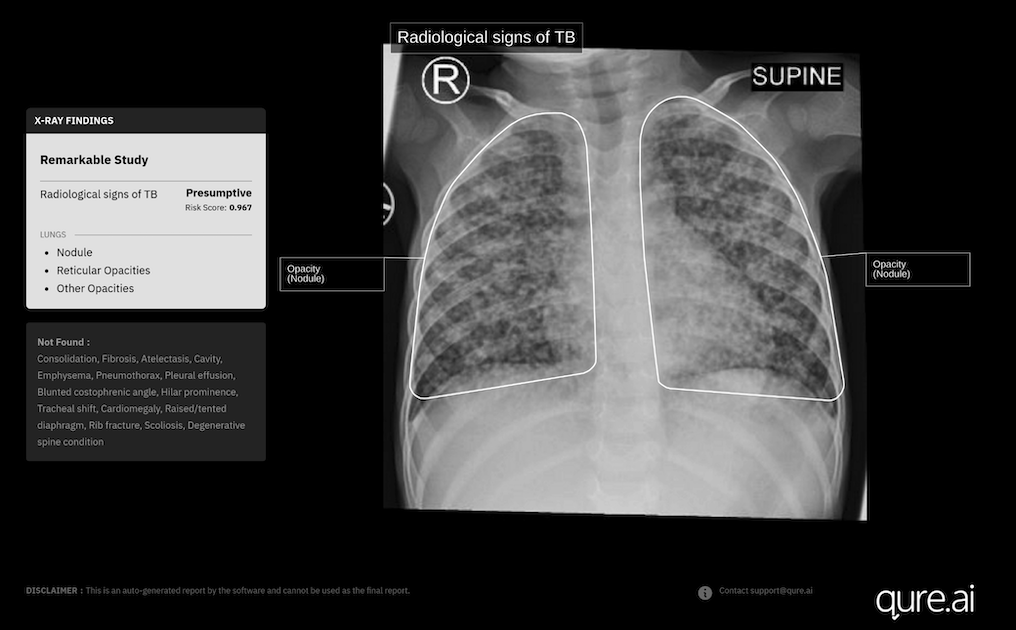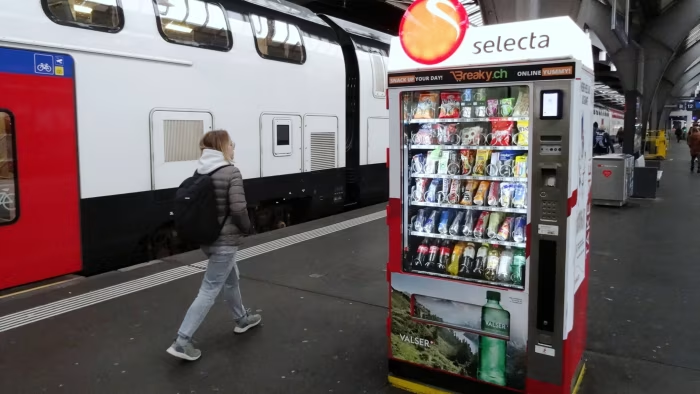As dengue cases in the Pacific reach their highest levels in a decade, new James Cook University (JCU) research highlights how human movement and weather patterns contribute to outbreaks in the region.



Anomaly detection use case will be demonstrated live with partner Q-KON at AfricaCom 2025
Herndon, VA, 28 October 2025 – ST Engineering iDirect, a global leader in satellite communications, today announced its AI-powered network analytics platform proof of concept that enables operators to anticipate and resolve network issues before they escalate. This underscores how real-time insights, predictive analytics, and anomaly detection are reshaping satellite network operations.
ST Engineering iDirect’s platform leverages both historical and real-time data—such as weather patterns—to predict throughput, identify anomalies, and drive proactive interventions. By minimizing downtime and maximizing network reliability, it empowers operators to meet customers’ expectations and deliver exceptional service by ensuring uninterrupted connectivity. The platform will help operators cut operating expenses, streamline resource management, and transition from manual to autonomous workflows, driving greater customer satisfaction and operational efficiency.
“Our strategy goes beyond connectivity. We’re developing value-added applications that help our customers run smarter, more resilient operations and create a true competitive edge,” said Sridhar Kuppanna, CTO and SVP of Engineering at ST Engineering iDirect. “By enabling operators to resolve issues early, optimize resources, and boost workforce efficiency, our network analytics platform advances both business outcomes and customer satisfaction.”
The platform was recently validated in a real-world use case. Q-KON, a leading provider of satellite communication solutions in Africa, utilized ST Engineering iDirect’s platform to detect anomalies affecting network performance. The early identification of a recent installation error allowed Q-KON to take corrective action and avoid service degradation, directly improving customer experience and operational performance.
“The insights gained from ST Engineering iDirect’s network analytics platform will be transformative,” said Dr. Dawie De Wet, CEO of Q-KON. “The ability to predict and prevent issues before they impact service will raise our operational standards, ensure reliable connectivity for our customers and enable us to offer advanced service packages.”
Live demonstrations of the platform will be hosted at Stand C63 during AfricaCom 2025, Nov 10-13, 2026. Register today.
*****
Media contact:
Martyn Gettings Tank PR
Email: martyn.gettings@tank.co.uk

New Zealand: Will Young, Rachin Ravindra, Kane Williamson, Daryl Mitchell, Tom Latham (wk), Michael Bracewell, Mitchell Santner (c), Nathan Smith, Zak Foulkes, Blair Tickner, Jacob Duffy
England: Jamie…

A new observational study published in

Skip…

Islamabad, Pakistan – After three days, talks between Pakistan and Afghanistan in Istanbul, aimed at ending a tense and violent standoff between the South Asian neighbours, appeared to have hit a wall in Istanbul on Tuesday.
Mediated by Qatar…

Unlock the Editor’s Digest for free
Roula Khalaf, Editor of the FT, selects her favourite stories in this weekly newsletter.
Hedge funds have adopted a new tactic in the distressed debt wars, arguing in a New York lawsuit filed on Tuesday that heavy-handed deals violate US anti-monopoly and cartel laws.
Manulife’s CQS, Algebris Funds and Deltroit Asset Management claim they were cut out of a deal that handed a group of other similarly situated bondholders disproportionate economic benefits in a debt restructuring earlier this year.
The lawsuit, which relates to the recent restructuring of Swiss vending machine operator Selecta, represents the first time that competition law has been invoked as an alleged charge of wrongdoing in the increasingly fractious realm of distressed debt litigation.
The claimants allege that a so-called co-operation agreement struck between the majority bondholders — a group that included Invesco, Man Group, Strategic Value Partners and Diameter — was specifically designed to keep the bulk economic benefits of a bond exchange from those not invited to join.
According to the complaint, the bonds currently held by the majority group trade at more than 70 cents on the dollar while the minority group has paper trading at half that level.
“The co-operation agreement is a classic example of an anti-competitive and collusive agreement between competitors . . . to control the price for Selecta Group BV’s first lien debt”, the complaint said. It alleged the agreement violated the federal Sherman Act and the New York state Donnelly Act.
So-called non pro-rata debt restructurings, where lenders or bondholders holding equally-ranked paper get different payouts, have proliferated in the US over the past decade. But only in recent years have European companies attempted such manoeuvres.
The Selecta deal drew attention this year among analysts and investors for what was believed to be one of the most complex and aggressive bond exchanges in recent memory.
Selecta, which was previously owned by KKR, had sought a solution to upcoming maturities in a near €1.5 debt stack it could not pay off.
The majority bondholder group used Dutch law on distressed disposals to take control of Selecta, and then offered a coercive bond exchange to the smaller holders.
That offer presented the smaller holders with a choice to either keep their existing paper, but pushed to the bottom of the creditor hierarchy, or take new senior paper which gave the majority group the ability to strip covenants and other protections ahead of potential future transactions through which the majority group could extract even more benefits.
Litigation over non-pro rata debt exchanges has typically centred on contract or securities law, which generally requires unanimous or supermajority approval within a class of creditors to change debt terms or execute a refinancing transaction.
Theories about how competition law may apply in intra-class disputes have surfaced in recent debates between academics and advisers.
However, those had focused on circumstances where a debtor company declared that a creditor co-operation agreement was anti-competitive, not a dispute between creditors as with Selecta.
The plaintiffs, who have separately alleged the restructuring violated contractual provisions of the bond indenture that required 90 per cent support for the deal, are requesting damages.
Samir Parikh, a law professor at Wake Forest University in North Carolina, expressed scepticism about the chances of success of the minority bondholder’s claims, but said that such a lawsuit was predictable.
“Parties resorting to antitrust law is unsurprising given the strong desire to undermine co-operation agreements and the relative ineffectiveness of other levers that have been pulled to date.”

Inflation has jumped to 3.2% in the year to September, from 2.1% in June, as waning government subsidies feed through to higher household power bills.
Any lingering chance of a rate cut next Tuesday was squashed after the new Australian Bureau of Statistics figures also confirmed a troubling rise in underlying inflation.
The Reserve Bank’s preferred trimmed mean measure – which removes the impact of large, temporary price moves – climbed by 1% in the three months to September and far ahead of the RBA’s predicted rate of 0.6%.
Sign up: AU Breaking News email
That left inflation on this trimmed mean measure at 3% in the year, against 2.7% in June.
Michele Bullock, the RBA’s governor, this week made it clear that a quarterly rise in underlying inflation of 0.9% would be a “material miss”, signalling the monetary policy board would not be prepared to deliver a fourth rate cut.
While Australians will feel the bite of higher electricity prices, what has been more concerning for the central bank is the unexpected and unwelcome lift in underlying inflation.
Bullock this week made it clear that the central bank is, for now, more worried about the prospect of resurgent inflation than a recent jump in unemployment.
Bullock said the labour market was not about to “fall off a cliff” and that the jobless measure was “still pretty low”.
after newsletter promotion

By Emily Bary
Volume growth picked up in the latest quarter, suggestive of healthy payment activity
Visa’s revenue exceeded expectations in the September quarter.
Volume growth picked up in Visa’s latest quarter, signaling a robust spending landscape.
The company on Tuesday reported 9% growth in payment volume for its September quarter, up from the 8% growth rate posted in the June quarter.
The “continued healthy consumer spending,” as described by Chief Executive Ryan McInerney, drove Visa (V) to beat revenue expectations for the latest quarter. The company posted $10.7 billion on the top line, up 12% from a year earlier and above the $10.6 billion that analysts tracked by FactSet were forecasting.
Adjusted earnings per share came in at $2.98, topping estimates by a penny.
Read: SoFi’s business is on fire, and these earnings numbers show what’s clicking
Visa benefited from 12% growth in cross-border volume, which is largely seen as a proxy for spending related to international travel but also includes things like e-commerce transactions conducted between a merchant and buyer each based in different countries. Cross-border volume tends to be more profitable than domestic volume.
Shares of Visa were edged 0.4% higher in the extended session, with the company’s outlook potentially encouraging as well. Visa just began its new fiscal year and expects a low-single-digit revenue growth rate for fiscal 2026. Analysts tracked by FactSet were looking for $44.2 billion in annual revenue, implying expectations for 10.5% growth.
“As technologies like AI-driven commerce, real-time money movement, tokenization and stablecoins converge to reshape commerce, our focus on innovation and product development positions Visa to lead this transformation,” McInerney said in his statement.
Investors will get another look at the payment-technology landscape on Thursday morning, when Mastercard Inc. (MA) reports its September-quarter results.
See also: PayPal partners with OpenAI – and its stock is rewarded
-Emily Bary
This content was created by MarketWatch, which is operated by Dow Jones & Co. MarketWatch is published independently from Dow Jones Newswires and The Wall Street Journal.
(END) Dow Jones Newswires
10-28-25 2025ET
Copyright (c) 2025 Dow Jones & Company, Inc.

Whether you are scaling a tall building or need to cross an open field faster, utilities are invaluable in Arc Raiders. They might not feel essential during your first few raids, but mastering them early will greatly improve your survival…